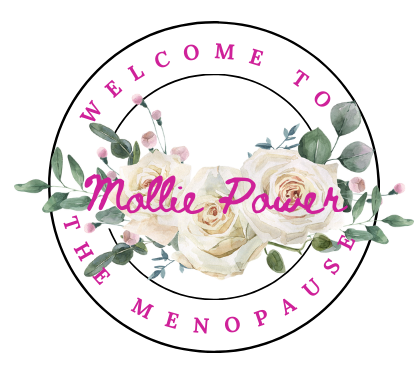
I am going to start off by shedding light on something that might have caught you off guard during menopause: heart palpitations. These are the unexpected sensations where your heart feels like it is beating too hard or too fast, fluttering, or skipping a beat. They are short-lived and harmless, pulling your attention to your heartbeat. I want to help you understand why this happens, especially during the menopausal transition.
You are going to find out about how the ebb and flow of hormones during menopause can lead to these palpitations. It is all about the shifts in oestrogen and how they interact with your cardiovascular system. These hormonal fluctuations can cause your heart rate to increase or make it more noticeable.
I will also help you distinguish between palpitations that are a normal part of menopause and signs that might point to something more serious. Not all heart flutters should be brushed off, and knowing when to consult a healthcare professional is vital. If your palpitations come with dizziness, chest pain, or shortness of breath, that is your cue to see a doctor.
While understanding these heart irregularities is important, the key to a healthier transition lies in managing your lifestyle to reduce these episodes. This is not just about waiting for palpitations to pass; it is also about taking steps to minimize their frequency and impact. Let us take a closer look at how you can achieve this.
Let us start by focusing on the impact of lifestyle choices on menopause symptoms, particularly heart palpitations. Do not worry too much about making drastic changes overnight. It is more about incremental adjustments that can bring significant relief over time.
A balanced diet is key. You are going to find out that certain nutrients play a pivotal role in heart health during menopause. Think omega-3 fatty acids, magnesium, and potassium-rich foods. These are not just tasty; they can help regulate heartbeat and prevent palpitations.
Next up, let us talk exercise. Choose something that resonates with you, so it is sustainable. Whether it is brisk walking, swimming, or a dance class, the goal is cardiovascular fitness, which can keep palpitations in check.
Now, stress—a notorious trigger for palpitations. Explore stress-reduction techniques that can also ease menopausal symptoms. Yoga, meditation, and deep breathing exercises are not just buzzwords; they are tried and true methods that can help calm both mind and body.
And let us not underestimate the power of good sleep. This is not just about catching Z’s; it is also about creating a sleep-conducive environment. Dark, cool, and quiet is the mantra for a bedroom that can help improve sleep quality and potentially reduce palpitations.
If you want to take a proactive role in managing palpitations, adopting these changes is a fantastic starting point. However, when lifestyle adjustments are not cutting it, it is time to consider medical interventions and professional advice—which leads me right into the next section.
Medical Approaches to Menopause-Induced Palpitations
Tackling the medical side of handling heart palpitations during menopause. This is not just about what you can do at home; it is also about when and how professional medical intervention can make an enormous difference.
If you are noticing that heart palpitations are becoming more frequent or bothersome, it may be time to seek medical intervention. The sooner you address the symptoms with your healthcare provider, the better you can manage them.
Hormone replacement therapy, or HRT, is a common strategy doctors use to alleviate menopausal symptoms, including palpitations, It’s crucial to have a candid discussion with your healthcare provider about this to help you understand the balance of potential benefits, such as symptom relief, against the risks, like an increased chance of certain health issues.
Now, what about alternative medicine? There are many options like herbal supplements and acupuncture. There is a lot of opportunity in these treatments speaking to your local healthcare professional familiar with integrative medicine can offer guidance on what might work best for you.
Regular monitoring of heart health is key during menopause. This includes tests like EKGs, blood work, and even a stress test to ensure that palpitations are not a sign of underlying issues. Choose something that resonates with you and your health goals when deciding how to approach monitoring.
Women’s Experiences with Palpitations

Navigating the challenges of menopause, including heart palpitations, can be a complex journey for women. Engaging in conversations with fellow women not only provides reassurance but, more importantly, fosters a profound sense of solidarity. Sharing experiences and insights becomes a valuable lifeline, creating a supportive community where women can navigate the choppy waters of this phase together.
Discovering the emotional rollercoaster of menopause can be just as demanding as the physical aspects. Managing palpitations may give rise to anxiety and stress, yet finding solace in the fact that you are not alone can make a significant difference. I have come across inspiring narratives of women who have transformed their anxiety into a catalyst for adopting healthier lifestyles and gaining a profound understanding of their bodies. These stories exemplify the resilience and empowerment that can emerge from the shared experiences of navigating menopause.
There is a wealth of opportunity in drawing insights from others who have walked a similar path. Within the shared experiences lie invaluable nuggets of wisdom – from clever distractions during palpitation episodes to effective strategies for better sleep, dietary tweaks, and even discovering humour amidst the challenges. These shared tricks and strategies form a collective reservoir of knowledge, creating a supportive network where individuals can glean practical advice and encouragement.
These narratives carry a powerful message of empowerment. It extends beyond merely enduring menopause; it is about flourishing amidst it. Be it through ongoing education, consistent health check-ups, or casual conversations with friends, these women seized command of their menopausal journey—and you can too.
My sincere wish is that after reading this article, you depart with a sense of companionship and a wealth of knowledge. While heart palpitations in menopause may pose a challenge, armed with the right information and your own support network, you can traverse this phase with as much ease as possible.
Your Story Matters! Share Your Experience
Welcome To The Menopause family,
We are all about sharing stories here, and we want to hear yours! After diving into our latest post, we’re eager to know how it resonated with you. Did you relate to a particular point? Maybe you have your unique take on the topic?
Let’s make this space a hub for diverse experiences. Drop a comment below and let’s spark a conversation. Your voice matters, and we can’t wait to read your insights!
Cheers to sharing and connecting!
